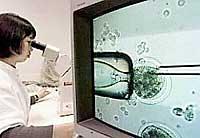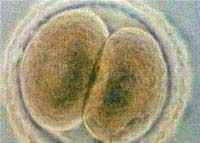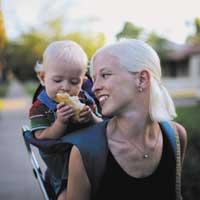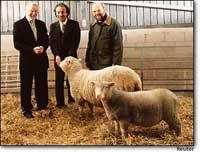No cloning, assisted reproduction
2003/10/15 Rementeria Argote, Nagore - Elhuyar Zientziaren Komunikazioa

Although the trial has been conducted in China, it has been led by James Tap of the University of New York: in vitro fertilized a woman's oculus and introduced the nucleus into the core of another woman's oculus. Thus, they obtained the cytoplasm of one woman but the genetic material of another (fertilized oculus). Along that road, they managed five zygotes and entered the woman's womb to develop there. Three out of five vaccinated children made progress for more than twenty weeks. But his mother has lost her children. This technique is known as human nuclear transfer.
As can be seen, in this technique a fertilized oculum is used and therefore with maternal paternal genetic material. Therefore, it cannot be said that it is cloning, since it uses genetic material from an adult cell, which means that the fetus receives genetic material from a single person. Cloning is also characterized by the need to reprogram the cell, that is, it "rejuvenates" its genetic material to have the behavior of the zygote. In this case, researchers have worked with eggs and sperm, that is, with a 'young' genetic material.

However, it is not the first controversy of James Tap. Even when he unveiled this technique five years ago, the U.S. regulatory agency FDA warned him that he needed special authorization to conduct the trials, as the transfer of genetic material required compliance with human cloning standards. Therefore, Faucet travels to China to carry out the reproduction by transfer of the human core, since there they did not put objections.
However, it seems that the researcher has been dissatisfied with Chinese health services, to which he has attributed the loss of children by his mother and the consequent failure of the trial.

Gai honi buruzko eduki gehiago
Elhuyarrek garatutako teknologia






